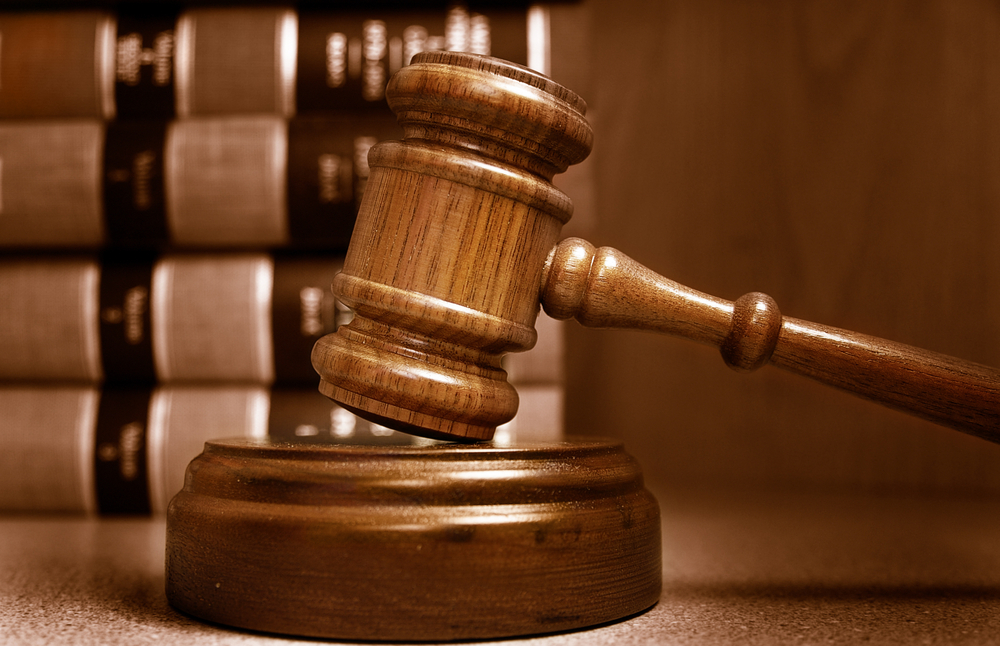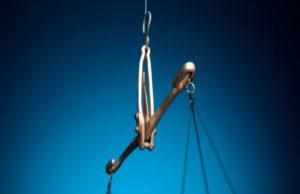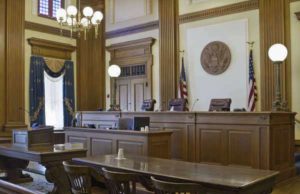
Introduction
Stenography is the act of writing in shorthand using a stenotype machine. Stenographers use their shorthand notes to transcribe speeches, court hearings, and other legal proceedings accurately and quickly. A career in stenography requires a strong work ethic, excellent attention to detail, and a passion for languages. In this article, we will discuss the four things you must know to become a stenographer.
1. Strong Typing Skills
Stenography involves typing at a high rate of speed while maintaining an accurate record of the proceedings. The stenographer must be able to type at least 225 words per minute with a 95% accuracy rate. To achieve this level of typing proficiency, it is essential to practice regularly. Practicing with typing software, taking speed-typing classes, and participating in stenographer forums and communities can all help improve typing skills.
2. Knowledge of Legal Terminology
Stenographers must have a thorough understanding of legal terminology and procedures. They need to be familiar with the different legal terms and jargon used in specific legal instances. Acquiring knowledge of legal terminology is possible through coursework in legal studies and practical experience in courtrooms. Legal terminology and procedures understanding also come with experience in an internship or shadowing a practicing stenographer.
3. Familiarity with Stenotype Machines
Stenotype machines are specialized typing tools used for stenography. These machines allow stenographers to type quickly using shorthand rather than typing out every word. To become a stenographer, it is essential to learn how to use a stenotype machine efficiently. Stenographer training programs and schools offer instruction on how to operate the machine. The more familiar you are with the machine, the more productive you will become.
4. Professional Certification
Becoming a certified stenographer can improve employment opportunities and demonstrate your technical skills. The National Court Reporters Association (NCRA) offers certification exams that recognize the skills that stenographers must demonstrate to work in the profession. The NCRA certification exams cover topics such as legal terminology, stenotype machine usage, transcription technology, and courtroom procedures.
NCRA certification options are the Registered Professional Reporter (RPR), the Certified Realtime Reporter (CRR), and the Certified Reporting Captioner (CRC), among others. The RPR certification is considered entry-level certification for stenographers. Obtaining certification is achievable after graduation from coursework for a stenographer or relevant experience and test-taking preparation.
Conclusion
A career in stenography requires technical skills, a good work ethic, and a passion for the job. To become a stenographer, you need to have strong typing skills, understand legal terminology and procedures, be familiar with stenotype machines, and obtain professional certification. With their shorthand notes, stenographers play a pivotal role in documenting legal proceedings and ensuring that the legal system runs smoothly. By acquiring these skills and knowledge, you can become a successful stenographer and enjoy a rewarding and fulfilling career.
The Definition of a Stenographer
A Stenographer – also known as a ‘Court Reporter’ – is a licensed and certified professional responsible for the transcription of speech into text taking place within a court hearing or trial. The transcription of legal proceedings from speech form into textual form is regarded as legal transcription.
Tenographer positions are classified as legal occupations requiring specific certifications from accredited institutions.
Stenographer positions are offered in a multitude of professional settings, which include a varying degree of courts and legal venues, including municipal courts, city courts, state courts, district courts, circuit courts, superior courts, appellate courts, and the Supreme Court. The field specialties required within the varying degrees of Stenographer positions are vast, ranging in salary, legal setting, and equipment used.
National Court Reporters Association (NCRA)
The National Court Reporters Association is deemed as the authoritative institution responsible for not only the regulation of certifications granted to Stenographers, but also for the oversight of the practice of legal transcription and stenography.
The NCRA began as an institution specializing in shorthand with regard to the provision of expedited and accurate transcription of events. The NCRA teaches the methodology expressed in The Phrase Book of Pitmanic Shorthand with regard to the authorized transcription of legal and medical proceedings.
The Origins of Stenotypes
A Stenograph machine – oftentimes referred to as a Stenotype machine – is a device that resembles a typewriter, used by a Stenographer for the purpose of transcription. The stenotype was patented in 1879. However, unlike a traditional typewriter a stenograph machine contains only 25 keys and does not operate on a traditional keyboard format such as ‘QWERTY’.
In contrast to traditional keyboards typically associated with computers and typewriters, stenotypes possess fewer keys. In addition, keys representing ‘whole’ words determined to be the most common within legal proceedings exist, allowing for the transcription of words in lieu of single letters.
Standard legal transcriptions may involve the production of legal transcripts ranging from from 100 to 300 words recited per minute. A Stenographer must maintain the ability to accurately transcribe the speech of an event in real time.
Thyra D. Ellis is considered amongst the pioneers of stenography who assisted in the development of the requirements necessary for satisfaction by an individual stenographer interested in becoming a Registered Professional Reporter (RPR), which includes a standard for words-per-minute typed, the mastery of legal shorthand, and the adherence to the protocol required of legal transcription.
Stenographer Certification
In order to be awarded certification as a Registered Professional Reporter (RPR), the individual will be required to satisfy the following requirements:
Stenographer Written Knowledge Test
In order for an applicant to receive a passing grade on the Written Knowledge Test – an examination used to gauge the skill of an individual stenographer student – the individual stenographer will be required to display the ability to produce a transcription of events, proficiency in the operation of a stenograph machine, and a review of background knowledge and professional acumen.
Words per Minute Typed (WPM)
The ability to produce an expressed amount of words within a finite period of time is required. These requirements vary with regard to the nature of the testimony:
Literary Legal Transcription (180 wpm);
Jury Transcription (200 wpm);
Examination-based Testimony (225 wpm).
A Stenographer – also known as a ‘Court Reporter’ – is a licensed and certified professional responsible for the transcription of speech into text taking place within a court hearing or trial. The transcription of legal proceedings from speech form into textual form is regarded as legal transcription.
tenographer positions are classified as legal occupations requiring specific certifications from accredited institutions.
Stenographer positions are offered in a multitude of professional settings, which include a varying degree of courts and legal venues, including municipal courts, city courts, state courts, district courts, circuit courts, superior courts, appellate courts, and the Supreme Court. The field specialties required within the varying degrees of Stenographer positions are vast, ranging in salary, legal setting, and equipment used.
National Court Reporters Association (NCRA)
The National Court Reporters Association is deemed as the authoritative institution responsible for not only the regulation of certifications granted to Stenographers, but also for the oversight of the practice of legal transcription and stenography.
The NCRA began as an institution specializing in shorthand with regard to the provision of expedited and accurate transcription of events. The NCRA teaches the methodology expressed in The Phrase Book of Pitmanic Shorthand with regard to the authorized transcription of legal and medical proceedings.
The Origins of Stenotypes
A Stenograph machine – oftentimes referred to as a Stenotype machine – is a device that resembles a typewriter, used by a Stenographer for the purpose of transcription. The stenotype was patented in 1879. However, unlike a traditional typewriter a stenograph machine contains only 25 keys and does not operate on a traditional keyboard format such as ‘QWERTY’.
In contrast to traditional keyboards typically associated with computers and typewriters, stenotypes possess fewer keys. In addition, keys representing ‘whole’ words determined to be the most common within legal proceedings exist, allowing for the transcription of words in lieu of single letters.
Standard legal transcriptions may involve the production of legal transcripts ranging from from 100 to 300 words recited per minute. A Stenographer must maintain the ability to accurately transcribe the speech of an event in real time.
Thyra D. Ellis is considered amongst the pioneers of stenography who assisted in the development of the requirements necessary for satisfaction by an individual stenographer interested in becoming a Registered Professional Reporter (RPR), which includes a standard for words-per-minute typed, the mastery of legal shorthand, and the adherence to the protocol required of legal transcription.
Stenographer Certification
In order to be awarded certification as a Registered Professional Reporter (RPR), the individual will be required to satisfy the following requirements:
Stenographer Written Knowledge Test
In order for an applicant to receive a passing grade on the Written Knowledge Test – an examination used to gauge the skill of an individual stenographer student – the individual stenographer will be required to display the ability to produce a transcription of events, proficiency in the operation of a stenograph machine, and a review of background knowledge and professional acumen.
Words per Minute Typed (WPM)
The ability to produce an expressed amount of words within a finite period of time is required. These requirements vary with regard to the nature of the testimony:
Literary Legal Transcription (180 wpm);
Jury Transcription (200 wpm);
Examination-based Testimony (225 wpm).


















